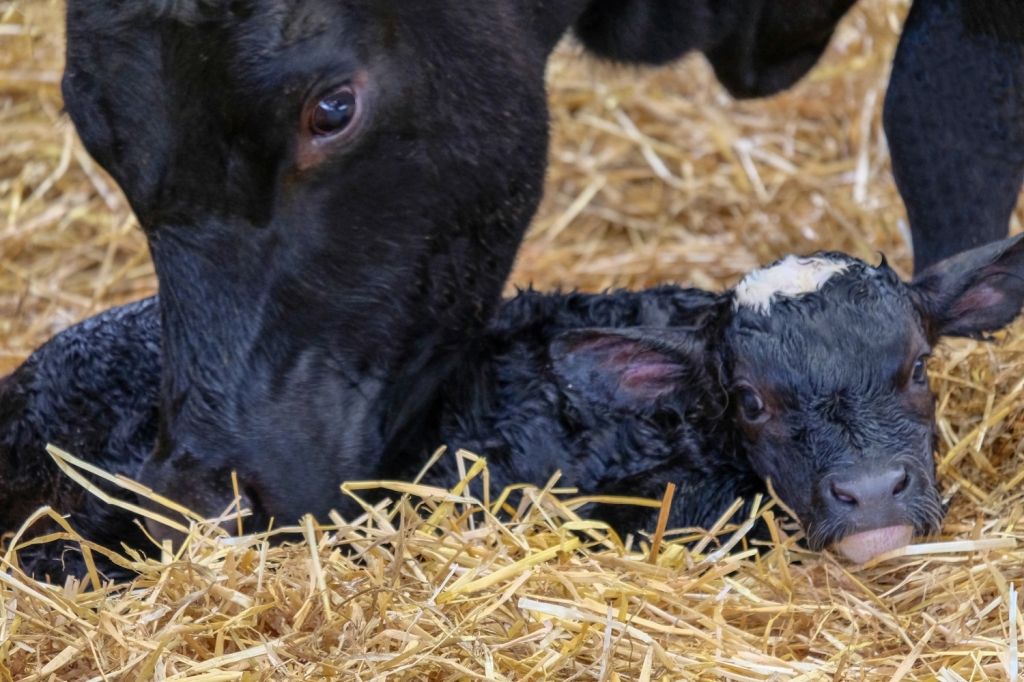
The findings suggest there is more scope for vets to discuss dystocia treatment and prevention with clients
CVS Farm Conducts New Cattle Dystocia Research
CVS Farm has undertaken new bovine dystocia research where UK farmers have been surveyed on the diagnosis, treatment and prevention of the disease.
It is hoped the findings will help to reduce dystocia’s significant economic cost for both the dairy and beef sectors, and help to resolve this common farm animal welfare issue.
Affecting many UK farms, bovine dystocia is an abnormal or difficult birth at any stage of labour. It has a direct negative impact on calves (for example, prolonged hypoxia, significant acidosis and increased stillborn rates) and dams (for example, trauma, paresis, metritis and endometritis). The main causes of dystocia are foetal-maternal size mismatch, foetal malpresentation and dam related causes (for example, uterine torsion). Overall, the frequency of dystocia required assistance during calving is still high (>%5). A recent study in the UK found that almost one in five calvings (17.8%) were recorded as being assisted (Bragg, 2021).
The aims of the CVS Farm research were to fully understand UK farming’s point of view about the management, prevention and consequences of dystocia. The project looked to; estimate the prevalence of dystocia in the UK; explore farmers knowledge of the signs of calving and different stages of labour; identify what preventative measures farmers are taking to reduce dystocia; see if standard operating procedures about calving and dystocia cows are in farm herd health plans; explore if farmers feel they need more information about the calving cow and dystocia; and report on any aftercare provided by farmers to the dam and calf following an assisted calving.
The CVS Farm study took the form of a cross-sectional online questionnaire. It was distributed via multiple channels to UK dairy and suckler beef suckler beef farms across England, Scotland and Wales between July 2023 and February 2024. A total of 305 eligible respondents took part in the questionnaire.
The research found the median prevalence of dystocia was above the target across cows and heifers, for both dairy and beef farms. The prevalence varied significantly between farms, with some very high levels reported. On average, dairy farms stood at 8.5% (heifers) and 6.1% (cows), with the corresponding figure for beef farms at 16.7% (heifers) and 6.7% (cows).
The research also revealed that only 23% of dairy farms had complete instructions for calving management included in their herd health plans (95% confidence interval 15-32%), which was completed by the vet most of the time. Over 20% of farmers did not utilise expected breeding values for calving ease as a preventative measure of dystocia. Only 40% of farms were providing extra care to every cow with an assisted calving, with meloxicam administration being the most common procedure (82%).
In addition, the research identified that most farmers stated they could improve their knowledge about the different stages of labour. Nearly 65% felt that they would benefit from more veterinary advice regarding the assistance of cows with dystocia.
Jorge Silva, Veterinary Surgeon at Castle Vets, who is leading the dystocia study said: “Overall, these findings suggest that there is considerably more scope for veterinarians to discuss and emphasise the importance of dystocia treatment and prevention with their clients.
“We think opportunities exist in the form of ensuring the inclusion of standard operating procedures on calving management in the farm herd health plan, as this is a fundamental document to help decrease and monitor the dystocia rates on the farm”.
CVS Farm division has over 120 vets in 15 modern farm specific practices nationwide. Its practices offer a comprehensive range of services, with a focus on helping our clients prevent disease and maximise efficiency of production on their farms. For more information please visit: Farm Practices | CVS Group (cvsukltd.co.uk)
More from CVS UK Ltd
- Chestergates Veterinary Specialists launches Specialist Dermatology Service
- CVS launches Life Stage Assessment Clinical Improvement Project to champion pet wellness
- Chestergates Veterinary Specialists strengthens surgical team with appointment of Specialist Matthew Smith
- Precise imaging and unconventional fixation resolve challenging tarsal fracture
- CVS Farm Vets launches innovative Sheep Lameness Project to support UK farmers

 1 year ago
1 year ago  1111 views
1111 views

 7 hours ago
7 hours ago